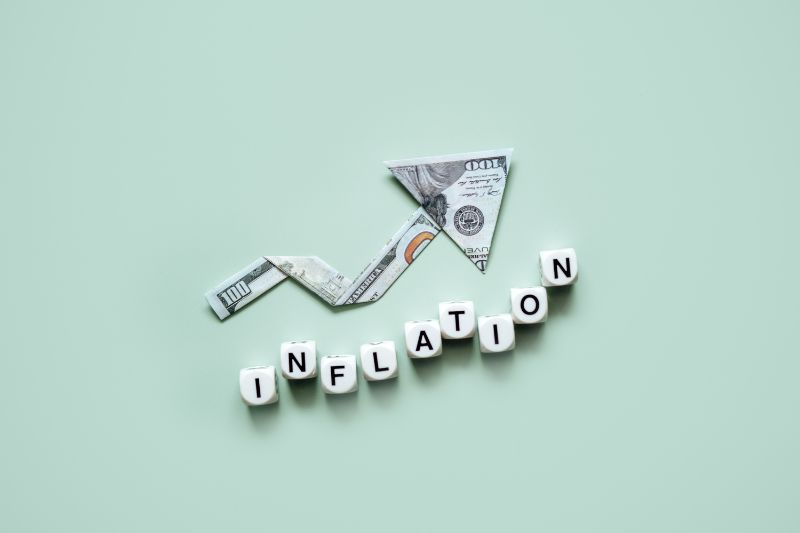Inflation is a major cause of concern for all households. Many households are not equipped to take on the increased cost of living. They often find themselves struggling with their finances and can’t seem to make ends meet. If this sounds like you, it’s time to go back to basics and get your finances in order.
What is inflation?
Inflation is the rise in prices of goods and services in an economy over a certain period. This can be due to several reasons, including more money in circulation, increased demand for goods and services, or changes in supply and demand dynamics.
If you’re worried about inflation, there are several inflation-fighting strategies for households you can employ to protect your financial health:
1. Create a budget
Budgeting is one of the most effective inflation-fighting strategies for households. The idea of budgeting is not new, but it has become even more important in recent years. The basic concept of budgeting is to create a plan that allocates your income wisely and then stick to it.
It would help if you planned out how much money is coming in and how much is going out every month. It can be as simple as dividing your monthly income into categories such as rent, food, transportation, utilities, and entertainment. This will help you understand where your money goes and will allow you to cut down on unnecessary spending habits.
2. Choose a flexible mortgage product
Another way to protect yourself from inflation is by choosing a flexible mortgage product. You can opt for a flexible mortgage product such as an adjustable-rate mortgage (ARM). This type of loan allows you to pay back less interest than fixed-rate mortgages because it adjusts its interest rates periodically based on current market conditions.
3. Swap to energy-saving products
Energy bills are one of the biggest household expenses, so it’s important to find ways to reduce your usage. There are several ways you can lower those costs by using more energy-efficient products. For example, swapping to energy-saving products, such as LED (light emitting diode) light bulbs, can help you reduce your electricity bills.
They also last longer than standard bulbs, so you won’t have to keep buying replacements. In addition, upgrading old appliances such as refrigerators or washing machines can also help lower your electricity bill each month depending on your usage patterns.
4. Use coupons when shopping
Coupons are a great way to lower your grocery bill. When you are out shopping, look around for store flyers that have coupons you can use. You can also find coupon codes online for certain items, such as food and diapers. If you shop at a grocery store with a rewards program, check to see if they have any promotions going on that week. For example, some stores offer double points on Tuesdays or buy-one-get-one-free deals on Sundays.
5. Buy generics and store brands
You don’t always need name-brand products to get quality results. Many people think generic brands are lower quality than name brands, but this isn’t always true. Many generic items have the same ingredients as their name-brand counterparts — but less expensive packaging and marketing costs go into making them available at a lower price point.
6. Pay down debt fast to avoid the high interest rate
One way inflation steals from your paycheck is by raising the interest rate on your debt, such as credit card debt. So if you have credit card debt, the best way to fight inflation is to pay it off as quickly as possible. Credit card companies charge interest rates that are much higher than the current inflation rate, so the longer you wait to pay off your debt, the more money you’ll lose in interest payments.
7. Purchase what you need
When you’re fighting inflation, it’s important to only buy necessary things. You should also avoid paying the full retail price for these items. It’s possible to find cheaper alternatives or get them at discount stores. The less money you spend now, the lower your overall expenses will be.
If there’s something expensive you need, such as a washing machine, try saving up for it instead of buying on credit. You’ll save money in interest charges and won’t risk getting into more debt if things go poorly financially. If it’s something that will only be used occasionally, such as a lawn mower or snow blower, ask around your neighborhood for someone who has one they’re willing to rent out for a few hours.
8. Don’t dine out all the time
One of the ways you can save money is by reducing your dining-out expenses. This doesn’t mean you have to stop going out altogether, but it does mean you should limit yourself to only going out on special occasions. If you’re guilty of eating at restaurants too often and spending more than you should on food, consider cooking at home more often instead. You’ll save money in the long run and avoid those pesky restaurant bills!
9. Create an emergency fund
One of the best ways to prepare for inflation is to have an emergency fund. A good rule of thumb is to have enough money saved up to cover at least six months of expenses in case of an emergency. This way, if any unexpected expenses come up or you lose your job, you won’t have to worry about going into debt or dipping into savings to pay for them.
In conclusion
Inflation is a risk that everyone faces, but there are ways to manage it. With these inflation-fighting strategies for households, you can help ensure your household stays on solid financial ground.
The articles and content published on this blog are provided for informational purposes only. The information presented is not intended to be, and should not be taken as, legal, financial, or professional advice. Readers are advised to seek appropriate professional guidance and conduct their own due diligence before making any decisions based on the information provided.




